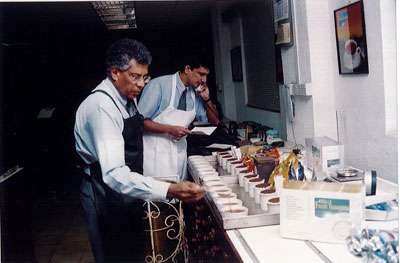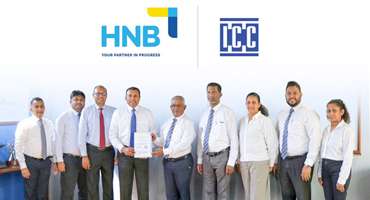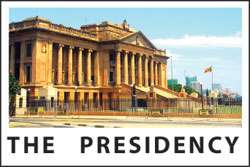Feature: A Journey from Knowledge to Legacy

By Timothy A. Edward
Is knowledge the same as wisdom? Where does competency sit in this equation?
In a sense, knowledge and wisdom are either overlapping or concentrated circles - it depends on how we perceive them. They are joined at the centre by understanding. For example, we may possess knowledge on a particular subject, but when we begin to apply that knowledge in our day-to-day activities, it starts to transform into wisdom.
Our homes may be filled with books, and books contain knowledge. But it takes intentional effort to read, understand, and apply what is embedded in those books. When we do this, knowledge becomes wisdom. As the saying goes, “There are precious treasures and oil in the house of the wise.”
Understanding: The Bridge between Past and Present
Understanding has a unique way of connecting the dots between the past and the present. Take data, for example. We now live in a data-driven age. What does data do in a business? It helps us identify patterns and themes from the past, thereby enabling us to understand the present and even predict the future.
In a similar manner, when we begin to understand the brevity of life against the backdrop of eternity, it starts to shift our business and life perspective. It changes our mindset, the way we work, the manner in which we do business, how we treat our clients, competitors and others, and how we invest our time and resources in coaching and mentoring. The realisation that we came into this world with nothing and will depart with no earthly possessions or credentials can transform the way we live.
In truth, we can only take with us our character and the good we have done - the harvest of our actions, attitudes, and who we were on this earth. In all these, our motives and actions reign supreme.
Competency: Wisdom in Action
This progressive equation - knowledge leading to understanding, which leads to wisdom - ultimately manifests in observable behaviour, which we call competency.
Competency can be defined as a combination of skills, knowledge, understanding, wisdom, and personal qualities that enable an individual to perform a task to the required standards successfully.
Whether in leadership, management, business, or any other occupation, every field has its own set of competencies and knowledge skills that one must master to succeed. Every organisation has its own competency framework that employees must demonstrate for the business to achieve its goals.
Learning and the Path to Mastery
When knowledge of core and functional competencies is coupled with understanding, learning happens. Learning enables us to skillfully apply these competencies in both normal and contingency situations, according to the required competency levels.
As we continuously apply our learnings, we gain experience. This elevates our learning from conscious competency to unconscious competency - a state where skillful behaviour becomes second nature.
Knowledge, understanding, wisdom, and unconscious competency all sharpen our intelligence - whether innate or acquired - such as IQ and emotional intelligence. We are all born with a certain degree of both, but they can be enhanced and sharpened through training and development.
Intelligence, Wisdom, and Lifestyle Alignment
This process brings about wisdom, which in turn brings about behavioural and mindset changes. Ultimately, it develops within us the competencies required to function in our roles - as leaders, managers, employees, friends, parents, spouses, children - with intelligence and wisdom.
In this way, wisdom can be defined as character, conduct, and lifestyle that align with our vocational and life callings. As ancient scriptures say, “The fear of God is the beginning of all wisdom”.
Legacy: The Succession of Vision and Values
Another dimension of this journey is the legacy we leave behind - the people we have influenced and produced, who will carry forward our vision and mission. Legacy is not merely about succession in a literal sense, but about the transmission of our values, purpose, and calling.
We must ask ourselves: Are we wisely investing in our legacy and successors? Are we cultivating people who will continue the business journey we began, not just in action but in spirit?
This journey - from knowledge to understanding, wisdom to competency, and ultimately to legacy - is not merely business or academic. It is deeply personal and profoundly spiritual. It challenges us to live intentionally, to grow continuously, and to invest wisely in others.
In the end, what we leave behind is not just what we built, but who we became - and who we empowered others to become.
-
Still No Comments Posted.















Leave Comments